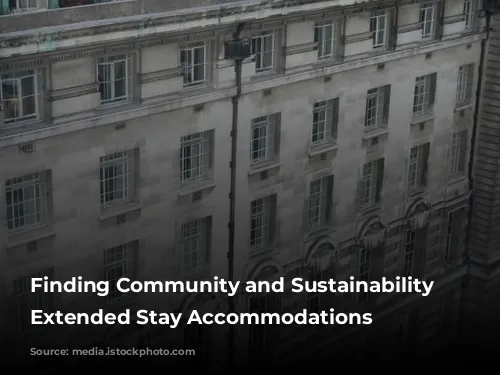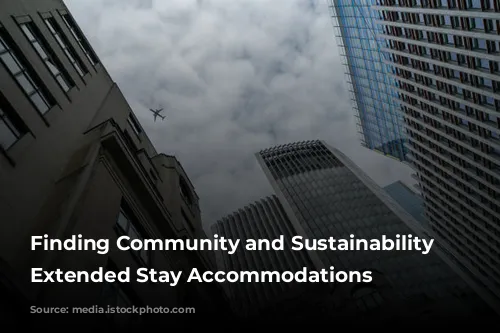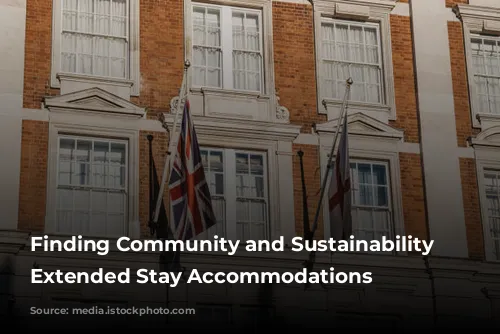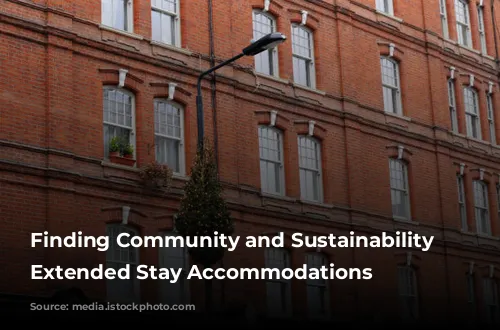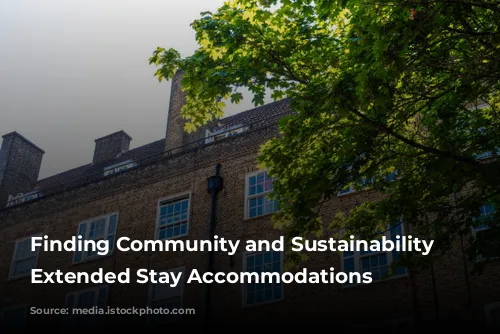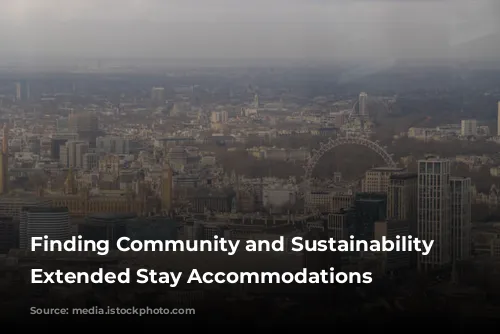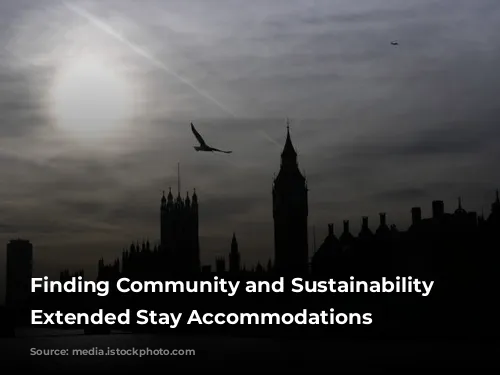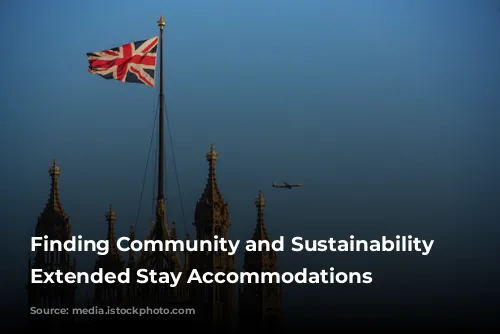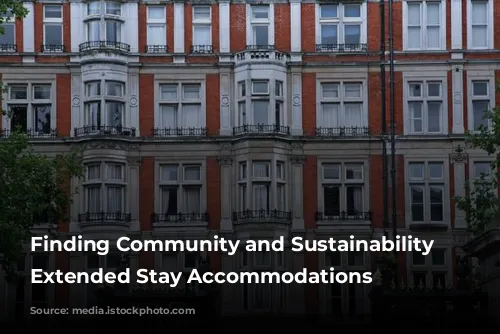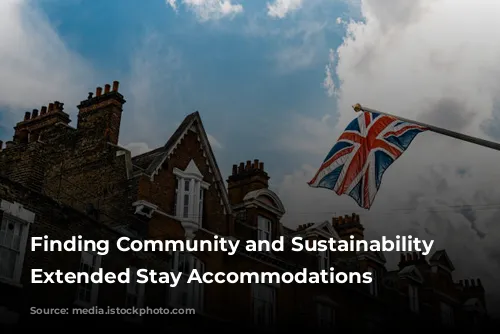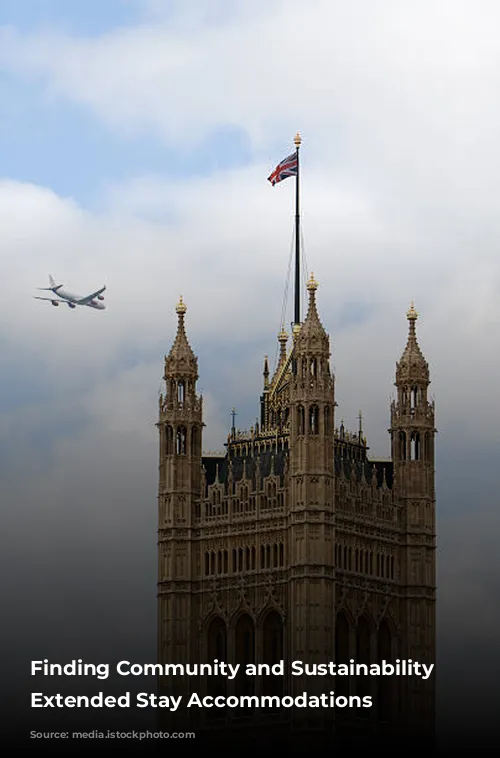Serviced apartments and aparthotels are evolving to meet the needs of modern travelers, offering more than just a place to stay. Beyond providing comfortable and functional spaces, they are actively addressing the growing concerns of loneliness during business travel and promoting sustainable practices.
These accommodations are creating a sense of community, fostering connections between guests and offering unique experiences.
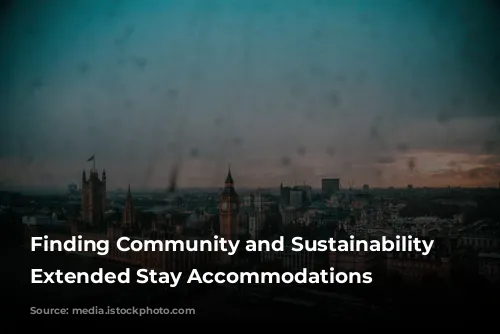
A Tribe of Travelers: Embracing Community
The feeling of isolation often associated with business travel has fueled the rise of community-focused accommodations. These properties recognize that travelers crave connection and are actively designing spaces to facilitate interaction.
Zoku, a brand inspired by the Japanese word for “tribe,” was created to address this need. Founder, Hans Meyer, saw a gap in the market between hostels and traditional hotels. While hostels provide opportunities for social interaction, they are not always suitable for everyone, especially for longer stays.
Zoku provides a solution with its vibrant, open-plan public spaces, encouraging spontaneous interactions. These spaces often include co-working areas, communal dining areas, and a calendar of events like live music, art workshops, and happy hours. Community managers are also employed to introduce guests to each other, fostering a sense of belonging.
Co-living takes this concept of community one step further. While definitions vary, Ariv Coliving offers private accommodation with hotel-style services, providing a more curated and managed experience.
Ariv’s shared spaces include a library, book exchange, and a community kitchen with multiple cooking stations, creating opportunities for social interaction and fostering a sense of home away from home.
The appeal of co-living is undeniable, offering a sense of belonging and connection, particularly for those traveling solo or for extended periods.
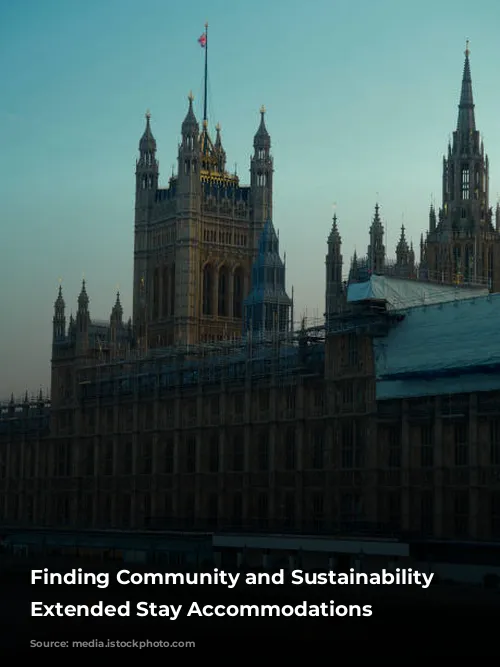
Sustainable Stays: Building a Greener Future
The extended stay concept aligns naturally with sustainable practices, promoting a lower environmental footprint. Guests tend to stay longer, reducing the need for frequent housekeeping and minimizing waste.
Accommodations are increasingly incorporating eco-friendly practices, minimizing their impact on the environment. Frasers Hospitality, a leading provider of serviced apartments, is actively modernizing its operations to meet sustainability challenges.
Fraser Suites Edinburgh, a historic property, is undergoing a renovation focused on energy efficiency, with new double-glazed windows, an updated HVAC system, and eco-friendly bedding made from recycled materials.
Converting existing hotel stock or office spaces is another emerging trend in sustainable accommodations. Ember Locke, Edyn’s latest property, is a prime example, housed in a renovated hotel, minimizing the environmental impact of new construction.
New builds are not off the table, but with a focus on energy-efficient design. Zoku Paris, located in a gleaming new building, utilizes low-carbon construction methods, solar panels, and a rooftop garden, providing fresh ingredients for its restaurant and contributing to a sustainable food chain.
These initiatives highlight the industry’s commitment to responsible practices, ensuring a positive impact on the environment while providing a comfortable and enriching experience for guests.
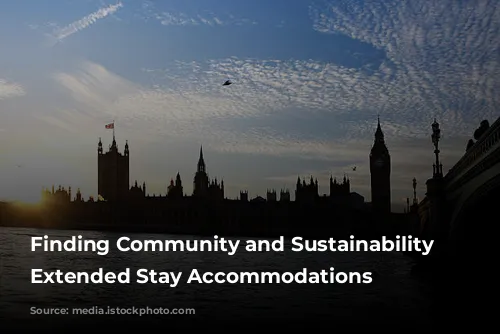
The Future of Extended Stays: Comfort, Community, and Sustainability
Extended stay accommodations are embracing the future, offering travelers a unique blend of comfort, community, and sustainability. From co-living concepts to eco-friendly renovations, these properties are meeting the evolving needs of modern travelers.
With an increasing number of options available, finding the perfect home away from home is easier than ever. Whether you’re seeking a sense of community, a commitment to sustainability, or simply a comfortable and convenient place to stay, the extended stay sector has something to offer everyone.
